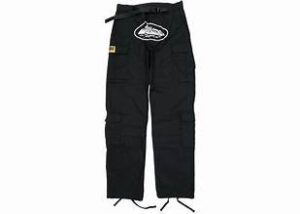Insulated Concrete Form (ICF) walls are becoming increasingly popular in construction because of their energy efficiency, strength, and durability. However, like all concrete structures, ICF walls need proper waterproofing to prevent water damage, mold, and structural problems. This guide will walk you through the best methods, materials, and practices for waterproofing ICF walls effectively.
What Are ICF Walls?
ICF walls are constructed using hollow foam blocks that are stacked and filled with concrete, offering outstanding insulation and structural strength. However, since concrete is a porous material, these walls can be vulnerable to water seepage if not properly protected. This ICF wall waterproofing guide will help you understand the best methods and materials to ensure your ICF walls remain dry and damage-free.
Why Waterproof ICF Walls?
Waterproofing is essential for ICF walls for several reasons:
- Prevent Water Damage: Water penetration can cause cracks and weaken the concrete.
- Avoid Mold Growth: Moisture in walls encourages mold, which can cause health problems.
- Increase Longevity: Proper waterproofing extends the life of the building.
- Maintain Energy Efficiency: Wet insulation loses its insulating properties.
Common Waterproofing Methods for ICF Walls
There are several proven methods to waterproof ICF walls. Choosing the right method depends on your budget, wall location, and local weather conditions.
- Liquid Waterproofing Membranes
Liquid membranes are applied as a liquid coating and cure to form a seamless waterproof barrier. These membranes are flexible and can fill small cracks, making them ideal for ICF walls.
- Sheet Membranes
These are pre-formed sheets made from materials like rubberized asphalt or polyethylene. They are applied to the outside of the ICF wall, creating a physical barrier against water.
- Cementitious Coatings
Cement-based waterproof coatings are easy to apply and bond well with concrete surfaces. They are durable but less flexible than liquid membranes.
- Traffic Deck Coating Solutions
Though often used for parking decks and walkways, traffic deck coating solutions can also be adapted for waterproofing ICF walls, especially in high-traffic or exposed areas. These coatings offer excellent protection against water ingress while resisting wear and tear.
Best Materials for Waterproofing ICF Walls
Selecting the right materials is key to effective waterproofing. Here are some common materials used:
- Polyurethane Coatings: Highly elastic and durable, perfect for areas with movement or temperature changes.
- Bituminous Membranes: Asphalt-based, offering strong waterproofing, but may require protection from UV rays.
- Silicone Sealants: Used for sealing joints and cracks; they remain flexible and prevent leaks.
- Traffic Deck Coating Solutions: These are robust, waterproof coatings designed to handle heavy foot or vehicle traffic and can be ideal for protecting exposed ICF walls near walkways or parking areas.
How to Prepare ICF Walls Before Waterproofing
Proper surface preparation is critical to ensure the waterproofing materials adhere correctly.
- Clean the Surface: Remove dirt, dust, and loose particles.
- Repair Cracks: Use suitable fillers to seal any visible cracks.
- Dry the Wall: Moisture can prevent adhesion, so the wall must be dry.
- Apply Primer: Some waterproofing systems require a primer to improve bonding.
Step-by-Step Waterproofing Process for ICF Walls
Follow these general steps for a successful waterproofing job:
- Inspect and Prepare the Wall: Clean and repair the surface as described above.
- Apply Primer (if needed): Follow manufacturer instructions.
- Apply Waterproofing Membrane or Coating: Use brushes, rollers, or spray equipment depending on the material.
- Allow Drying/Curing: This may take several hours to days depending on the product.
- Add Protective Layer: Some systems require a protective board or drainage layer before backfilling soil.
- Inspect for Completeness: Check for missed spots or thin coverage.
Tips for Long-Lasting Waterproofing of ICF Walls
- Choose the Right Product: Consider your climate, wall exposure, and traffic.
- Follow Manufacturer Guidelines: Always apply coatings as per instructions.
- Regular Inspections: Check for damage or wear every year.
- Use Traffic Deck Coating Solutions When Needed: Especially where walls are exposed to foot or vehicle traffic, these solutions provide extra durability.
About ShuswapWaterproofing
For professional waterproofing services, ShuswapWaterproofing offers expert solutions tailored to your specific needs. Specializing in innovative methods and high-quality materials like traffic deck coating solutions, they ensure your ICF walls stay protected against moisture and damage. Their experienced team provides reliable waterproofing that enhances the durability and safety of your structure, giving you peace of mind for years to come.






